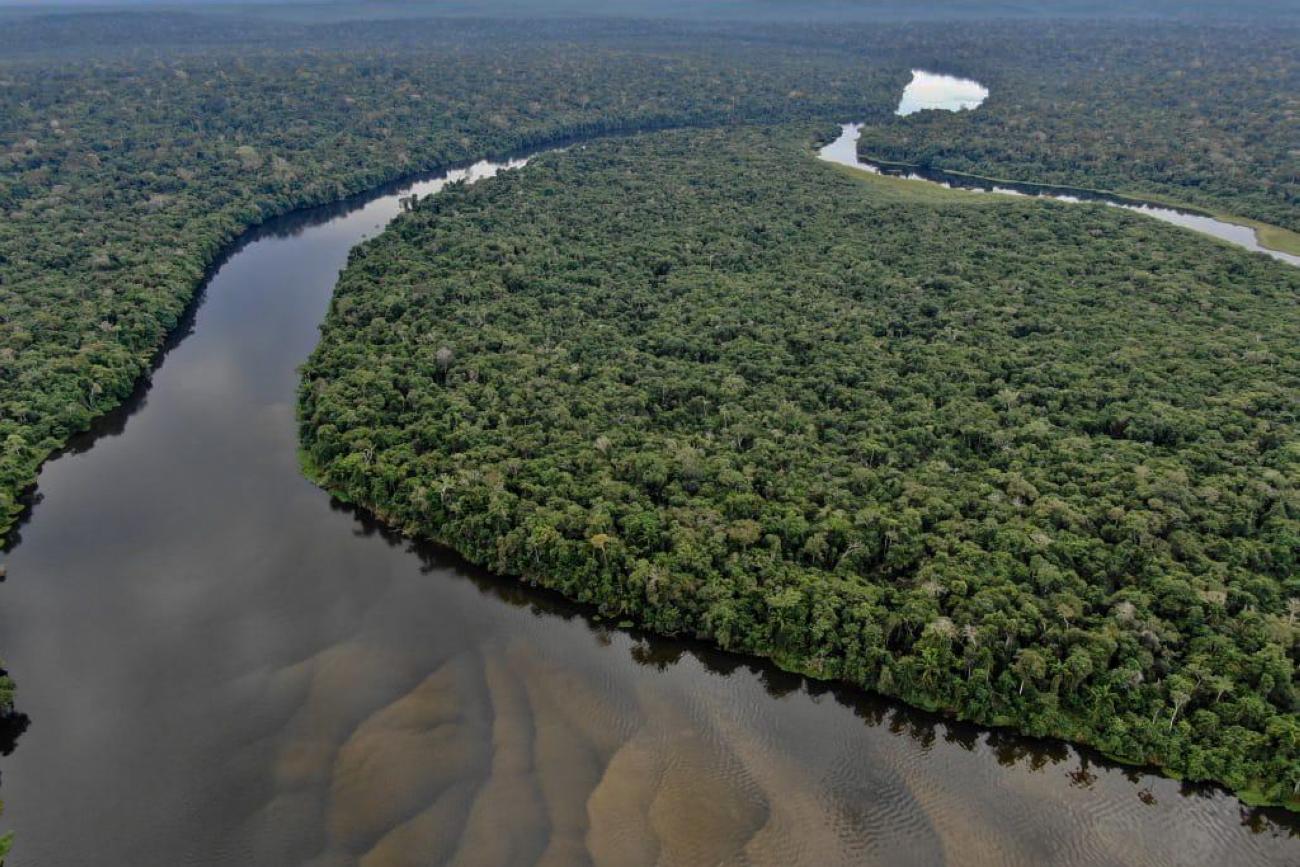As part of the project to create the Amazon Regional Platform of Indigenous Peoples (hereinafter Amazon Platform), the Amazon Cooperation Treaty Organization (ACTO) held the First Dialogue with Indigenous Organizations of Brazil for the construction of the Amazon Regional Platform of Indigenous Peoples on May 17 and 18 at the headquarters of the Sustainable Amazon Foundation in the Brazilian city of Manaus. This activity was organized in collaboration with the Coordination of Indigenous Organizations of the Brazilian Amazon (COIAB) and included the participation of COIAB’s executive coordinators and coordinators of the network: APIAM, APOIANP, ARPIT, CIR, COAPIMA, FEPOIMT, FEPIPA, MATPHA, OPIROMA, the Indigenous Movement of Acre, among others, as well as the active participation of women leaders from the Union of Indigenous Women of the Brazilian Amazon (UMIAB).
The meeting fostered an open and constructive dialogue that reinforced the need to create the Amazon Platform as a space for coordination and a working group for Indigenous Peoples and the governments of the eight countries to promote the exchange of experiences, public policies, and specific actions that enhance the participation and inclusion of Indigenous peoples in climate action, resilience to climate change from an Indigenous perspective, and integrated mitigation and adaptation, in light of the advancements of the United Nations Framework Convention on Climate Change (UNFCCC) and the recommendations of the Declaration of Belém. The following conclusions stand out from this event:
- Consider the demarcation and strengthening of Indigenous territory management as a central issue of Indigenous influence in resilience, mitigation, and climate adaptation policies.
- Establish work themes for the Amazon Platform from a comprehensive perspective to strengthen Indigenous resilience to climate change, including food sovereignty, territorial management and governance, agriculture, Indigenous economy, and work strategies to address the threats and risks posed by climate impacts and other factors affecting Indigenous territories, such as forest fires, droughts, floods, mining, and deforestation.
- Include in the work agenda the specific issues affecting Indigenous women and youth, as well as establishing specific actions that include them.
- Urgently establish a specific line of work on Isolated Indigenous Peoples concerning climate change from a transboundary perspective and in the broader context of threats to Indigenous Peoples and territories in the Amazon.
- Develop a workstream to build the capacities of Indigenous Peoples to enhance their influence in climate change dialogue processes at all levels—from local to national, regional, and especially within the UNFCCC—and ensure their participation in spaces such as the Conference of the Parties (COPs).
During the event, recommendations were also made for the governance structure of the Amazon Platform, emphasizing the need to:
- Guarantee the representation of Indigenous women and youth in the governance of the Platform in an organic, inclusive, and equal manner.
- Ensure the representation of Indigenous Peoples in the Platform with autonomy and respect for their rights and decision-making mechanisms.
- Establish a rotating structure, gender balance, regional equity, and consensus.
It was also concluded that the Amazon Platform, as a working group, should be based on the management and use/access of information under protocols that safeguard Indigenous knowledge, ensuring that any instrument or digital platform is regulated through a specific safeguard protocol in accordance with applicable legislation and the self-determination of Indigenous Peoples, prioritizing the protection and security of sensitive information and the integrity of Indigenous Peoples.
The conclusion was that the Amazon Platform must be a living, active entity with specific actions. Therefore, a long-term regional strategy should be developed as a strategic planning tool that can be operationalized into annual operational plans with assured budgets for implementation, facilitating access for Indigenous Peoples.
Finally, as one of the next steps after this 1st Dialogue, COIAB will present to ACTO a strategy for the participation of Amazon Indigenous Peoples toward COP30, which will be held in Brazil, as a contribution to the Platform’s construction process. To continue the dialogue, COIAB and ACTO will promote a meeting with the Ministry of Indigenous Peoples to share the event’s conclusions.
It is worth noting that, within the framework of the project to create the Amazon Regional Platform of Indigenous Peoples, ACTO has held similar events in Peru and Bolivia and will organize other dialogues with Indigenous Peoples from the other Amazon countries.
The Amazon Platform project is carried out with the support of the Euroclimate Program, the European Union’s main program to help meet the NDCs in Latin America and the Caribbean, implemented for the project by the Spanish Agency for International Development Cooperation (AECID), the Economic Commission for Latin America and the Caribbean (ECLAC), and Deutsche Gesellschaft für Internationale Zusammenarbeit (GIZ) GmbH.



